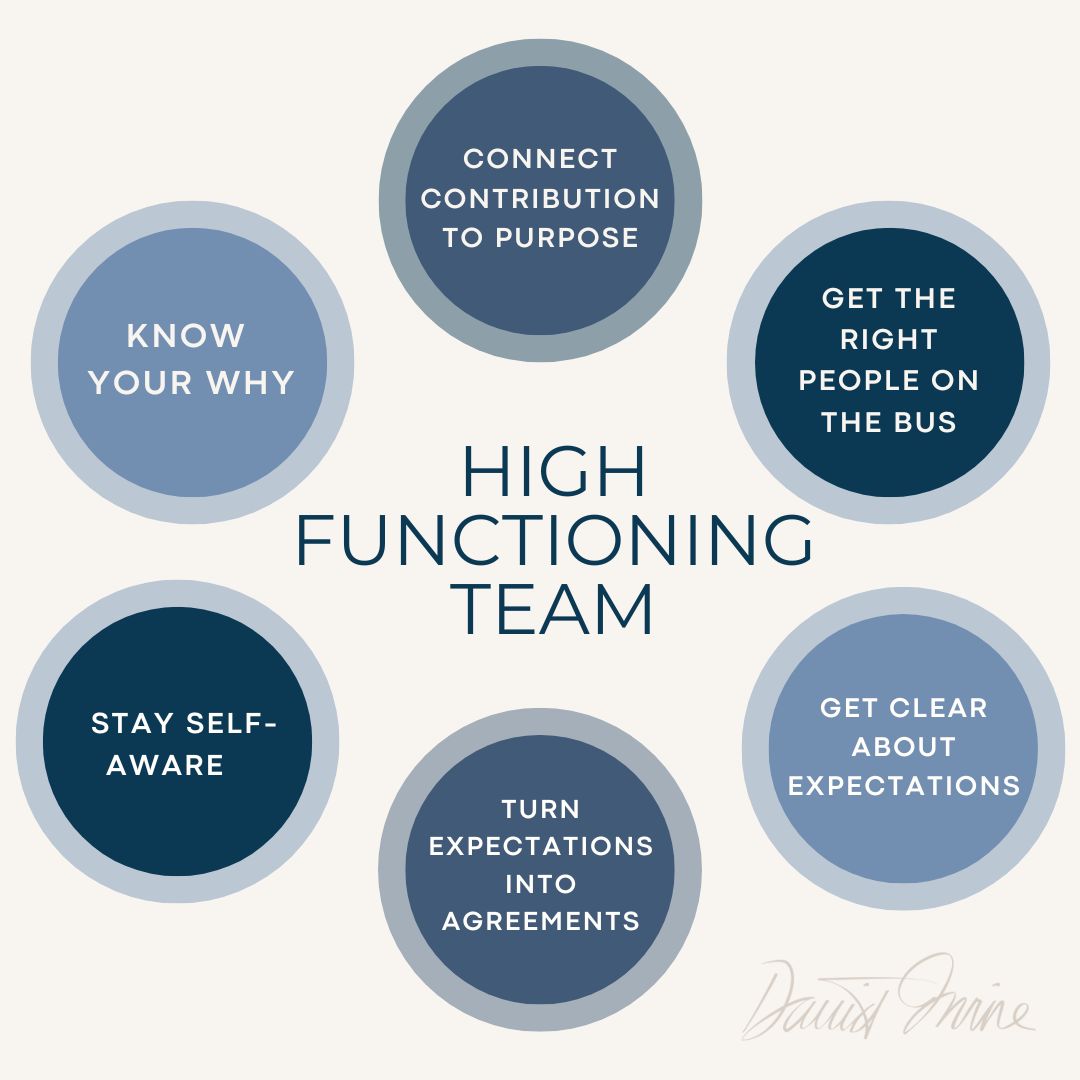The Myth Of A High-Functioning Team
 The Myth Of A High-Functioning Team
The Myth Of A High-Functioning Team
In forty years of doing this work, I have never come across a dysfunctional team. Every team has elements of disfunction and elements of health and falls somewhere on that spectrum. There is no formula. No template.
I have seen teams that are achieving incredible results that would fail dismally in terms of measuring up to what experts would describe as a “high functioning team.” And I’ve seen teams that can check off all the “High Functioning Teams” boxes but are still failing miserably.
This can also be said for leaders and individuals. There’s no blueprint. From our research and observation, however, six actions will support the health of any team:
- Know your why. And make sure everyone is clear, inspired and aligned with that purpose. A clear purpose leads to clarity about how much trust, engagement, and accountability you require.
- Connect contribution to purpose. Every team member needs to know that they made a meaningful contribution.
- Get the right people on the bus. You can’t train for character or chemistry. You can’t make a good hockey team out of a bunch of tennis players.
- Get clear about what you expect from each other. Ambiguity leads to mediocrity. Be sure to include, in the expectations, how you can best support each other.
- Turn expectations into agreements. Hold each other accountable for delivering on the promises you make to each other and to the people you serve.
- Stay self-aware. Be open for feedback. Keep learning. A team that learns together stays together – or at least stays engaged.
If you are interested to learn more about building a healthy culture, join us for this month’s complimentary webinar: https://lnkd.in/d37Prt4a



